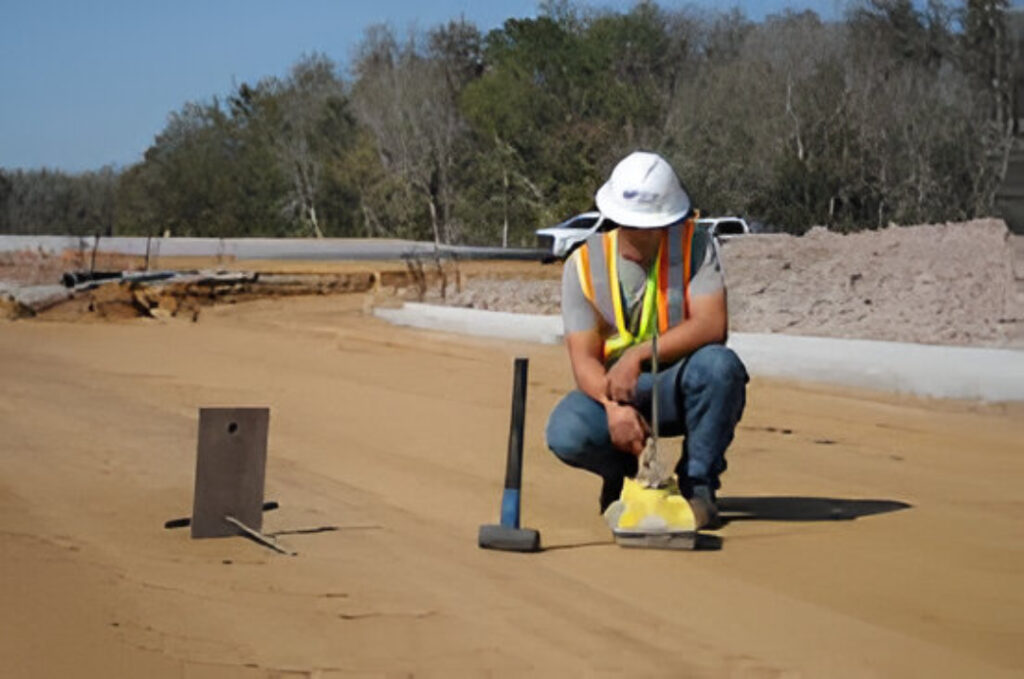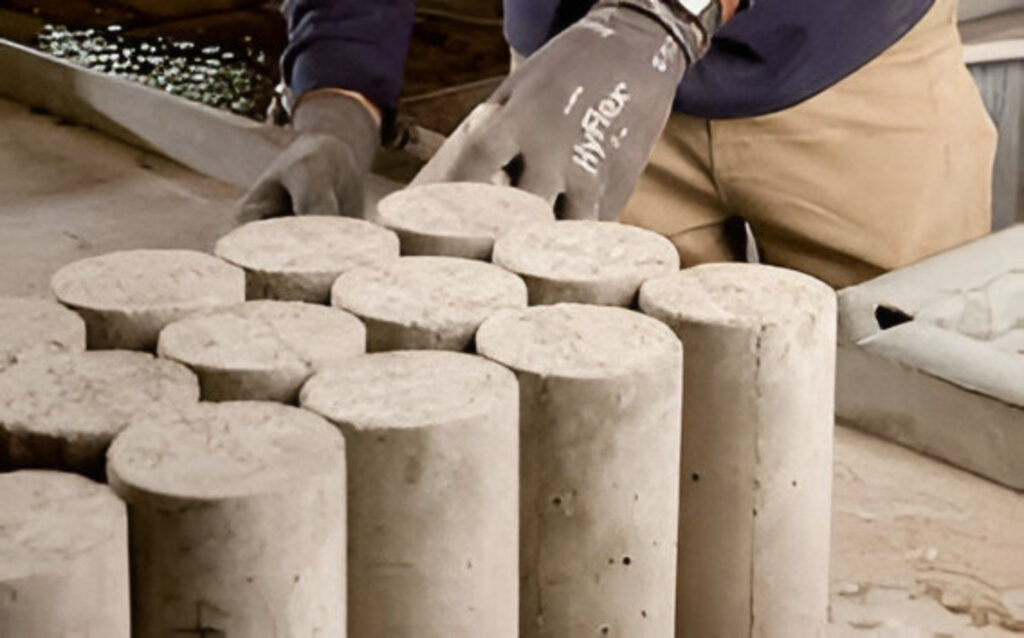Learn why material testing is crucial before commencing any construction project. Learn how it ensures safety, durability, and IS code compliance in building projects.
Whether it’s a high-rise building, a highway, or a bridge, every construction project begins with one critical step—material testing. Before a single brick is laid or any concrete is poured, engineers and builders rely on civil testing labs to validate the quality of construction materials. This process is far from a formality; it is a scientific and safety-driven requirement that determines the integrity, lifespan, and cost-efficiency of any structure.

What Is Material Testing in Construction?
Material testing is the process of analyzing construction materials such as soil, cement, concrete, aggregates, steel, bitumen, and water to ensure they meet the required standards and are suitable for use in a particular project.
This testing is usually conducted in specialized civil labs like Hi-Tech Civil Test Lab, which follow Indian Standards (IS codes) and international testing methods to provide accurate, reliable results.
Why Is Material Testing Necessary Before Construction?
1. Ensures Structural Safety
The primary purpose of any construction is to build something that stands the test of time. Material testing reveals the load-bearing capacity, compressive strength, and flexibility of materials. This ensures that structures do not fail under stress or environmental conditions.
For example:
- Concrete is tested for compressive strength using cube tests.
- Steel is tested for tensile strength and ductility.
- Soil undergoes bearing capacity tests before foundation design.
A minor deviation in material quality can lead to major structural failures, which is why testing is non-negotiable.
2. Confirms Compliance with IS Codes and Project Specifications
Every construction project in India must follow Bureau of Indian Standards (BIS) guidelines. Material testing confirms whether the selected materials meet these codes, thereby helping avoid legal issues and project delays.

3. Saves Long-Term Costs
It might seem like an added expense initially, but testing materials before use helps you avoid costly repairs and rebuilds later. A faulty batch of concrete or substandard steel can compromise the entire structure, leading to increased maintenance or even collapse.
4. Helps in Selecting the Right Materials
Not all construction sites are the same. For example, soil properties vary from place to place, and water used for concrete must be free of chemicals. By testing materials in advance, engineers can determine:
- The type of foundation is suitable for the soil.
- The ideal concrete mix design.
- Whether the available aggregate or water is usable.
This helps in customizing the material used as per site conditions.
5. Boosts Project Quality and Client Trust
In an increasingly competitive construction industry, quality assurance is a key differentiator. Material testing ensures that your project meets the highest standards, which not only improves the project outcome but also builds trust with clients, investors, and stakeholders.
6. Prevents Construction Delays
Testing in the pre-construction phase helps identify problems before they occur. This proactive approach allows developers to take corrective action in time, thereby avoiding delays due to sudden rejections of materials or mid-project changes.
7. Enables Quality Certifications
Government tenders, large-scale infrastructure projects, and smart city contracts often require certified test reports for every material used. Having your materials tested in a NABL-accredited lab like Hi-Tech Civil Test Lab allows you to apply for and win such contracts confidently.
Common Materials Tested Before Construction
Here’s a look at the most common materials tested before construction and why each matters:
| Material | Test Types | Purpose |
| Soil | Proctor Test, CBR, Plate Load Test | Determine bearing capacity |
| Cement | Fineness, Setting Time, Compressive Strength | Quality & strength assurance |
| Concrete | Slump Test, Cube Test | Workability & load capacity |
| Aggregates | Impact Value, Abrasion Test | Check durability & toughness |
| Steel | Yield Strength, Elongation Test | Assess flexibility & strength |
| Water | pH, Chloride, Sulphate Content | Ensure compatibility with concrete |
| Bitumen | Penetration, Softening Point | Evaluate road durability |
Why Choose Hi-Tech Civil Test Lab for Pre-Construction Testing?
- IS Code Compliant Testing
- NABL Accredited Facilities
- Fast Report Turnaround
- Field + Lab Testing Options
- Customized Consultancy with Expert Engineers
We help you start strong by ensuring the right materials are used from day one. Whether you’re building a residential society, a hospital, or an industrial facility, we provide the data you need to make informed decisions.
Material testing is not just a technical formality—it’s the foundation of quality construction. It ensures the safety, durability, and long-term performance of your structure. Partnering with a reliable lab like Hi-Tech Civil Test Lab can prevent costly mistakes, reduce risk, and ensure that every project stands the test of time for decades to come.
